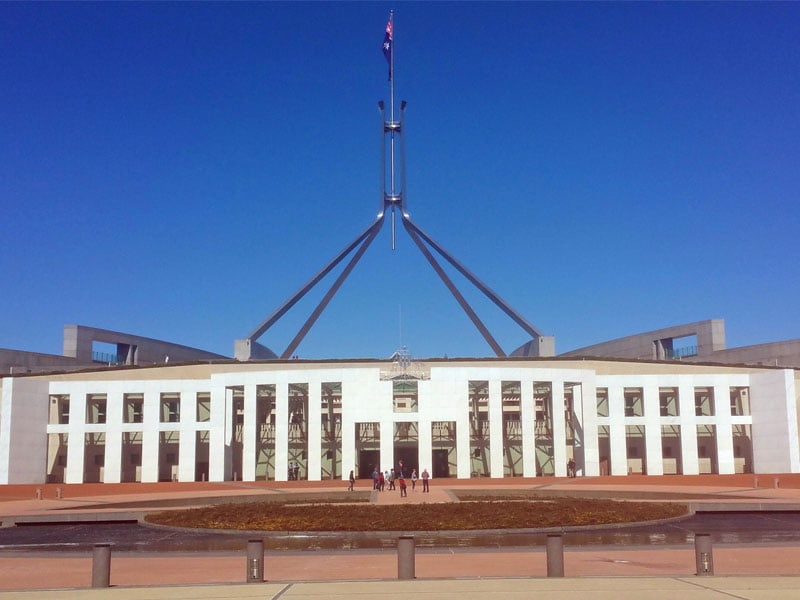Startups and tech companies have been ditched from the government’s reforms to the copyright safe harbour scheme, in a move that advocacy group StartupAus says risks losing promising early-stage companies overseas.
Communications minister Mitch Fifield introduced the Copyright Amendment (Service Providers) Bill 2017 to Parliament on Wednesday, extending the copyright safe harbour scheme to educational institutions, libraries and disability, archive and culture sectors.
But the government decided against extending the scheme to include online platforms hosting user-generated content, but leaving off tech companies and startups that have been lobbying for the reform for years.

The safe harbour provision provides legal protection for service providers hosting copyright infringing content, as long as the provider takes reasonable steps to remove it. In Australia, this currently applies only to telecommunications and internet service providers.
The government had been close to extending the scheme to include online platforms earlier in the year, but retreated from at the last moment in the face of intense lobbying from content owners, including the Australian Recording Industry Association, Foxtel, the AFL and News Corp.
There have now been nine public consultations on copyright run by government, with the last six recommending that the safe harbour regime be extended to online platforms. The Productivity Commission also recommended this in its report last year, with the government saying it “supports in principle” this recommendation.
Despite this, the government has again declined to take action. Senator Fifield said further consultation would be undertaken before it is possibly extended to other sectors, including tech companies.
“The measures in the bill will ensure these sectors are protected from legal liability where they can demonstrate that they have taken reasonable steps to deal with copyright infringement by users of their online platforms,” Senator Fifield said in a statement.
“Extending the safe harbour scheme in this way will provide greater certainty to institutions in these sectors and enhance their ability to provide more innovative and creative services for all Australians.”
“The measures in the bill initially extend the application of the existing safe harbour scheme to sectors that provide beneficial services to all Australians and who are working collaboratively with copyright owners to address infringement.”
The move has been criticised by StartupAus, with its chief operating officer Alex Gruszka calling it a “very disappointing decision”.
“We continue to lag behind others that have employed such a scheme, including the US, UK, Europe, South Korea and Singapore. We continue to have a significant barrier to starting a business like Google, Facebook, YouTube, SnapChat, Reddit or Pinterest,” Mr Gruszka told InnnovationAus.com.
“We also risk losing RedBubble, Envato and a host of Australian startups that are unprepared to take on that additional risk, and may see moving overseas as a necessity.”
Extending the safe harbour protections to online content providers was one of nine key recommendations included in this year’s StartupAus Crossroads report.
RedBubble founder and chief executive Martin Hosking has previously threatened to move his company overseas if the safe harbour regime isn’t expanded. He also slammed the government over the decision.
“We are very disappointed. Australia tends to like the idea of innovation but often the reality of it is much more challenging for Australian politicians, and I think we’ve seen that today,” Mr Hosking told InnovationAus.com.
“Innovation inevitably is challenging, it’s not an easy thing to do and when you do have very staunch lobbyists it’s hard for politicians to make the more difficult decisions, especially in this political environment,” he said.
“It’s a poor outcome, and Australia is left as the only country in the OECD which hasn’t had the nous to come up with safe harbour legislation that deals with the reality of the internet.”
RedBubble, which has a market cap of more than $225 million, is facing a number of lawsuits in Australia over copyright infringing content posted by users on its platform.
If the safe harbour scheme was extended to online service providers, the company would have been protected from many of these challenges.
“It’s hard to imagine a reality in which user-generated content cannot be dealt with in a legal environment on the internet. The situation we have right now is that sites which depend on user-generated content don’t have a secure legal framework, and that’s very challenging,” Mr Hosking said.
While Australia has a number of successful two-way marketplaces including RedBubble and Envato, Mr Hosking said the current copyright laws are preventing huge tech giants from being launched and grown locally.
“We’ve had some successes but we haven’t had anywhere near the successes of the very great companies that emerge out of Silicon Valley that rely on user-generated content, like Facebook and Google. They are two of the five largest corporations in the world,” he said.
Do you know more? Contact James Riley via Email.

